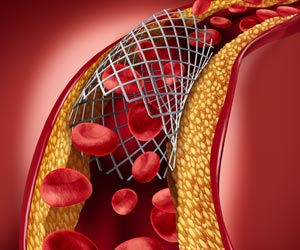Targeting a TSPO ligand reduced brain injury after intracerebral hemorrhage.

‘The pharmacological upregulation of a protein called TSPO reduces inflammation and brain edema after intracerebral hemorrhage.’





Liu and colleagues made their discovery after inducing ICH in mice by administration of known effectors, with or without etoxifine. Etifoxine reduced leukocyte infiltration into the brain and microglial production of interleukin-6 and tumor necrosis factor alpha, both hallmarks of ICH. The ligand improved blood-brain-barrier integrity and diminished cell death."This is a very provocative new lead on ICH," said Thoru Pederson, Ph.D., Editor-in-Chief of The FASEB Journal. "A cytokine axis in ICH is not new, but the notion that this TSPO ligand can do what it does is new, and very promising."
Source-Eurekalert













